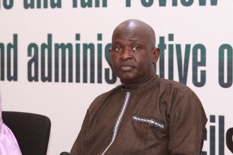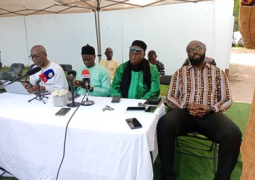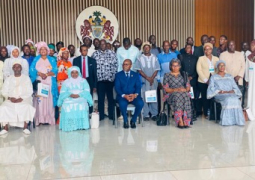
This came in the aftermath of recent testimonies by witnesses, including councilors themselves, that councillors were paid allowances during the feasts of Koriteh and Tobaski in the name of ‘Salibo’ or honorarium.
“It is honorarium, not ‘Salibo’ for the councilors,” Alagie Jeng said in response after being confronted, further claiming that the ward councillors were paid for rendering service to the council.
However, lead counsel Patrick Gomez weighed in, raising the concern that it was paid to all the councilors and whether it couldn’t have been attached to any committee.
“It was agreed. The CEO gave the instruction,” Jeng informed the Commission.
Nevertheless, tough questions dragged on and Jeng later changed his initial statement that the councilors rendered service to the council. He admitted that the statement that the payment was for service rendered was false. He then stated that the payment was discussed and agreed between the chairperson of the council and some councilors, as well as the chairperson and the CEO, and he was instructed to make the payment.
Jeng testified that the councilors were paid twice each year for Koriteh and Tobaski. Asked by the lead counsel why he authorised such payment as Director of Finance, Jeng only maintained that it was an oversight.
Again, reacting to a question posed by the Commission’s Chairperson Jainaba Bah, the witness said there is no payment in the Financial Manual categorised as ‘honorarium’.
“The payments were unlawful,” he clearly articulated, thus admitting illegal fiscal practices carried out by the top management of the Brikama Area Council.
Instituted by the Government of The Gambia, the Local Government Commission of Inquiry is tasked to conduct a holistic and impartial investigation into the doings of local government authorities (councils), with special emphasis on administrative and fiscal matters, and come up with recommendations to promote and strengthen transparency and accountability in local governance. Its mandate covers May 2018 to January 2023.





